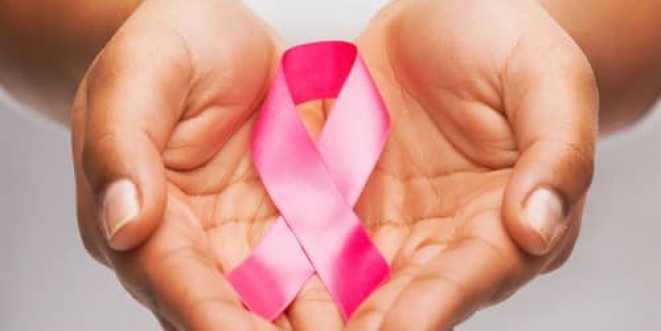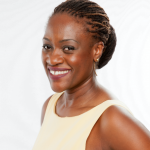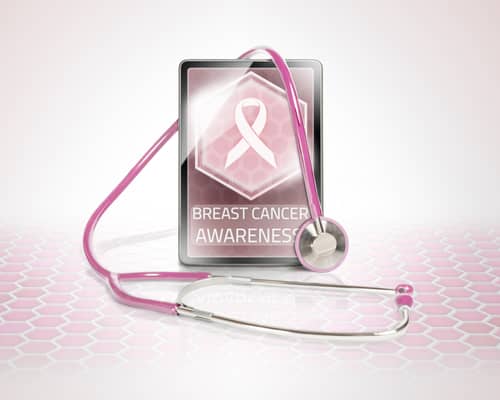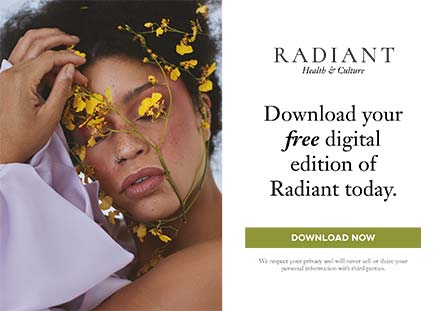Fight Like A Girl! Beat Breast Cancer With Early Detection
By Cordialis Msora-KasagoPublished: October 14, 2014

It is a disheartening fact that although white women are more likely to be diagnosed with breast cancer, black women are more likely to die from it.
According to the Globocan Project (2012), an international project that provides estimates of cancer in over 180 countries, breast cancer is the leading cancer for females in Nigeria. Due to lack of adequate screening and awareness resources to facilitate early detection, 80% of breast cancer in the developing world is diagnosed in its advanced stages. Coupled with the stigma sometimes associated with disease and the limited access to medical facilities, the consequences of breast cancer can be devastating.
October is Breast Cancer Awareness month and throughout the world women (and men) are donning pink and gracing their lapels with pink ribbons to increase breast cancer awareness and stress the importance of early detection for better outcomes.
What is Breast Cancer and what causes it?
Breast cancer is a type of cancer that affects the tissues of the breast. It can originate in the ducts that carry milk from the breast to the nipple or in the actual tissues that produce milk. While scientists agree that changes from the traditional active lifestyles and healthy foods to western influenced diets and lifestyles may be contributory, the main cause of breast cancer remains unknown.
They also concur that diagnosing cancer in its early stages is key.
In fact, early detection is so essential that the United States National Cancer Institute states that when breast cancer is detected early, the 5 year survival rate is 98%.
Screening Tools for Early Detection
1. Know your family history. Breast cancer can be genetic and if an immediate family member suffered from it, you should be vigilant about regular screenings. Knowing your family history, notifying your medical provider and using the various screening tools, you can catch it early and Improve your outcomes if you should ever suffer breast cancer.
2. Conduct a Self Breast Exam (SBE). Although no longer recommended as a screening tool for breast cancer, SBE’s are essential in helping you discover what is normal for you and consequently detect any changes in your breasts. Use this video as a guide to conducting effective self-exams.
3. Get a Clinical Breast Exam (CBE). A CBE is a medical examination done by a well-trained health professional to detect any lumps or abnormalities in the breast. It is recommended that women begin getting these exams at age 20 and every 3 years after that. Starting at age 40, the recommendations are for annual CBEs.
4. Get a Mammogram– One of the most definitive methods of detecting breast cancer is through the use of a mammogram, an x-ray of the breast tissue. Although there has been much discussion about the age and frequency at which they should be conducted, current guidelines are for women to get an annual mammogram, starting at age 40.
Warning signs of breast cancer
According to the Susan J. Komen Foundation, one of the leading organizations in the fight against breast cancer, signs of breast cancer include:
- Lumps, hardness or thickening of breast tissue
- Swelling, redness or darkness
- Changes in shape or size of the breast
- Dimpling or puckering of the skin
- Itchy, scaly sores or rash on the nipple
- Pulling in the nipple
- Sudden nipple discharge
- New breast or lower armpit pain that does not go away
Simple steps that may help
In addition to using the screening tools, there are a few diet and lifestyle choices that you can make to mitigate your risk.
- Enjoy a healthy diet with a wide variety of fruits and vegetables.
- Maintain a healthy weight and engage in a regular physical activity.
- Breastfeed. Women who breastfeed have decreased rates of cancer.
- Use alcohol in moderation.
- Don’t forget the men. Although the disease is often classified as a female concern, men also have breasts and can suffer from breast cancer. If the man in your life complains of breast pain or any of the other symptoms of breast cancer, have him assessed by a health care provider. While it may be odd and somewhat embarrassing, the cost of late diagnosis can be deadly.
As we celebrate “Pinktober, ” let us take the cause of the month seriously. Share this message with a mother, a sister, a wife, a girlfriend, an aunt and anyone that you care about. The life that you save may be yours.
Here’s to your health!
Cancer Resources for Nigerian and African Women
Like what you're reading? Sign up for our free newsletter and never miss a post! Plus get a FREE digital version of our Issue No.10 with sign up.

- 5 Foods That Reduce Your Risk For Cancer - April 28, 2015
- 5 Diet Blunders That Are Increasing Your Risk For Cancer - April 28, 2015
- Defeating Diabetes: The Best Way to Beat It Is to Never Develop It - November 4, 2014
- Planning Vegetarian Meals That Meet Your Nutritional Needs - June 17, 2014
- Clean Eating: What You Need To Know - September 16, 2015
- Want To Make Better Food Choices? Read The Nutrition Label! - August 20, 2014
- Breastfeeding: The Winning Goal For Life - August 1, 2014
- Juices Or Smoothies: What’s Best for Health? - October 14, 2014
- 11 Delicious Ways to Eat More Beans, Peas and Lentils - January 19, 2016
- Moin-Moin: To Peel Or Not To Peel The Beans - July 16, 2014













